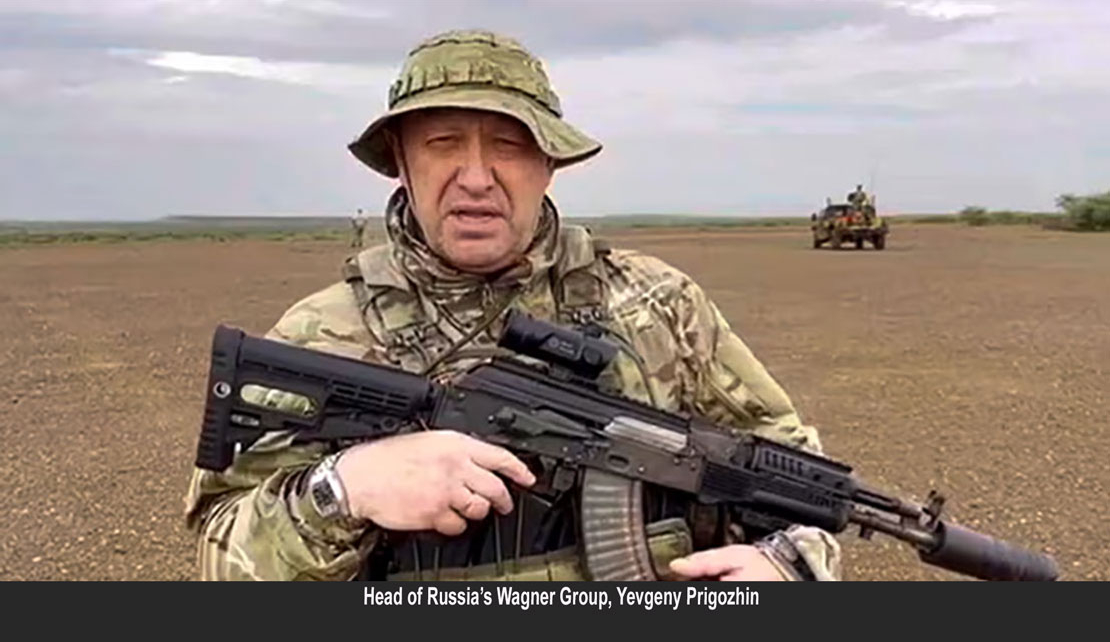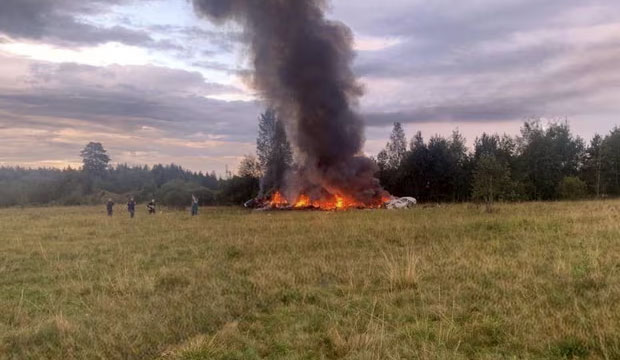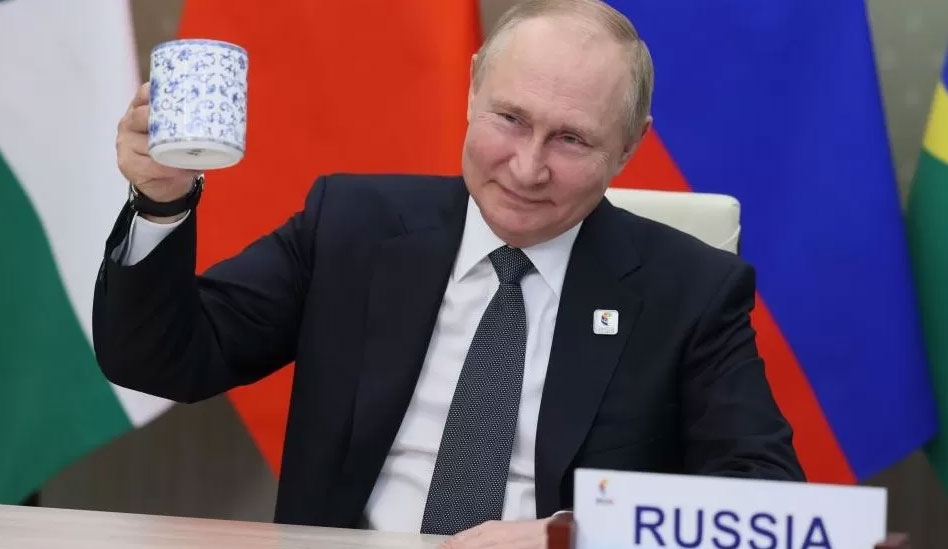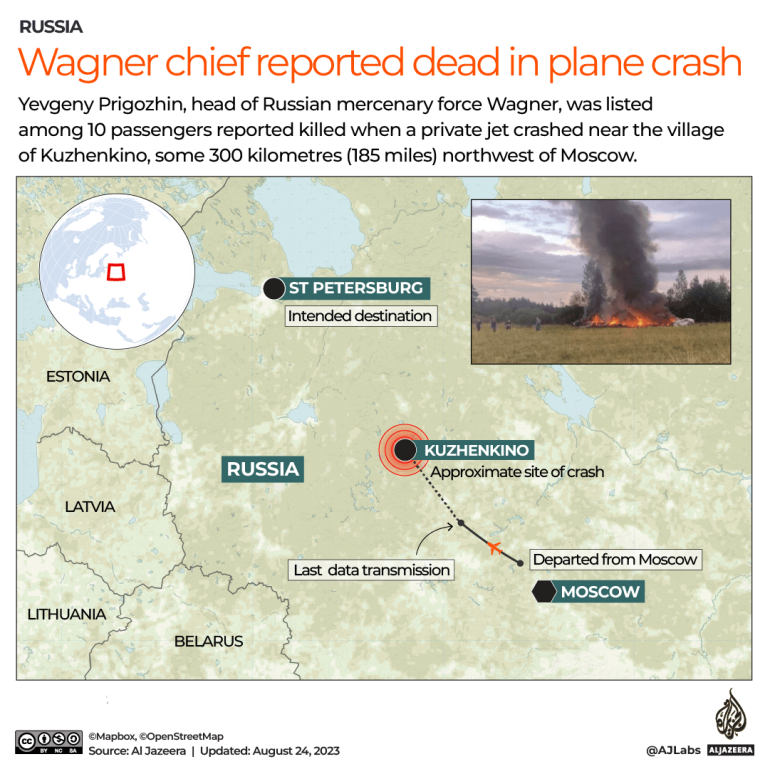With Prigozhin Gone What’s Next for the Wagner Group in Africa

MONTEGO BAY, Jamaica, August 23, 2023 - In the aftermath of Wednesday's presumed fiery demise of the head of the Wagner Group, Yevgeny Prigozhin, in his private plane that crashed north of Moscow, speculations are rife as to the future of the Wagner Group’s lucrative operations in Africa.

Rosaviatsia, the Russian aviation authority, said Prigozhin and senior Wagner commander Dmitry Utkin were among 10 people travelling on the Embraer business jet that crashed on Wednesday evening.
But questions on the lips of African scholars persist: What of Wagner’s Africa operations? Will they persist? Who will run them?
Or will the newly awakened African states smell the coffee and realize that their salvation lies neither with Russia’s Wagner Group nor the traditional western colonial powers. Rather they may find solace in the original intention of an African Federation of Independent States being proposed by Burkina Faso.
It foreshadows eventually stronger African political and economic integration like what typified the construction of Europe a few decades ago. Once they attained national sovereignty, the states of the West African sub-regionembarked on joint policies to deal with the obstructive effects of the borders drawn during the colonial era.
Their aim was to consolidate arrangements for joint action to achieve common development goals based on interstate solidarity: it was against this background that the African Union and regional economic communities were first established. Cross-border cooperation had an important part to play in this respect.
Wagner’s operations in Africa are likely to endure under a new leadership and structure, as they serve multiple interests of the Russian state. Over the past few years, Wagner has deployed several thousand troops in at least five African countries, serving as back-up to new military-run regimes, many times at great cost to the local population.
Wagner has been accused of involvement in massacres in Mali as well as elsewhere in the Sahel and central Africa.
The Wagner Group has sent mercenary deployments to Syria, Libya, Mozambique, Mali, the Central African Republic, and Sudan, as well as a presence in the Democratic Republic of the Congo.
The group is believed to have the largest presence in Central African Republic (CAR), where it intervened in 2018 on the side of the government to quell a civil war that has raged since 2012. Wagner also deployed about 1,000 personnel to Mali in December 2021 after a military coup.
Shortly after Prigozhin’s revolt, Moscow reassured its allies in Africa that thousands of Wagner group fighters deployed to the continent would not be withdrawn.
Wagner also maintains logistical, support, smuggling, and money laundering affiliates and subsidiaries in the United Arab Emirates. Through a vast network of intermediaries and shell companies, its business, commodity-extraction, and disinformation operations span even more countries.
While the Wagner Group withdrew some of its forces from Syria and Libya and deployed them to Ukraine, since the summer of 2022, Wagner has not significantly reduced its personnel or equipment in Africa or the Middle East.
It is understood that Wagner’s operations in Africa remain highly valuable for Russia, which uses them for extending its strategic influence and access to important raw commodities.
The Wagner Group’s protection of gas and oil fields in Syria, on behalf of the Bashar al-Assad regime, for example, plays into Russia’s global energy coercion games. At least four Russian companies linked to Wagner have exploration permits for Syrian gas and oil fields.
The intensifying U.S. sanctions on Wagner in Africa and the Middle East have hampered Wagner’s operations but have not eviscerated them, especially as Wagner has long been involved in various clandestine and illegal economies as well, such as antiquities smuggling.
In 2013, a Russian private security company, the Slavonic Corps, led by Dmitry Utkin, the notorious former Russian special operations forces officer, was sent to Syria to fight ISIS on behalf of the Assad regime.
Yet in what has been called ‘’an inglorious retreat,” they were not only chased out of Syria but also arrested in Moscow. Still, Utkin and various commanders and members of the Slavonic Corps were later allowed to form cadres under the Wagner Group. (Utkin, a prime target of the Kremlin’s ire also died in the plane crash).

Restructuring, not liquidation
Rather than fully liquidating Wagner in Africa and the Middle East, Russian intelligence services will purge Wagner’s structures to weaken affinities to Prigozhin and strengthen ties to the Kremlin. Such a restructuring would mimic the seeming preference of Russian President Vladimir Putin with respect to Wagner in Russia and Ukraine — rolling some cadres under the Russian military, disarming others, and allowing others yet to operate in the existing semi-independent format, but under a new leadership and with Prigozhin’s power minimized.
Such restructuring has started in Syria where Russian forces, assisted by the Assad regime, surrounded Wagner bases and interrogated and removed some Wagner operatives. That the Kremlin would prioritize reasserting control of Wagner in Syria is not surprising: That’s where Gen. Sergey Surovikin, who is close to Prigozhin and hasn’t been seen since the rebellion, led Russia’s brutal and indiscriminate air campaign on behalf of the Assad regime and had close connections with Wagner forces. Wagner’s forces in Syria could most augment the Wagner threat to the Kremlin. But it is noteworthy that the Assad regime did not hesitate in supporting the Russian state against Wagner.
Beyond purges, the Wagner Group in Africa may be renamed and broken up into multiple separate entities. Chopping up Wagner this way would give the Russian state better control over the proxy, even as the network’s murkiness would persist, and rival Kremlin and Russian intelligence and security services could clash with one another in mercenary and business ventures.
Under better control, Russia will likely tolerate and retain Russian private security companies operating abroad. Unlike in Syria, where the Russian military has had an official presence since 2017, sending official “military advisors” to African countries, instead of private proxies, poses various legal and diplomatic inconveniences for Russia and the African countries.
No easy way out
The African countries that have signed up with the Wagner Group for private security services, in their quest to rid themselves from the cloak of colonialism, are realizing that they do not have an easy exit strategy.
Mali is a prime example. After succumbing to Russia and Wagner’s influence and having kicked the French military out of the country in 2022 and the U.N. peacekeeping mission in June 2023, Mali is dependent more than ever on Wagner’s forces. All the more so that the U.N. Security Council accepted Mali’s request and voted to end the mission.
Focused far more on securing access to Mali’s gold mines, the 1,000-2,000 Wagner contractors have not been particularly effective in suppressing the jihadis in Mali’s north. In fact, from counterinsurgency and counterterrorism perspectives, their brutality has backfired. But the junta has no immediate alternative.
Besides, Wagner’s principal sell in Africa has become its praetorian guard service for authoritarian regimes as well as elected governments. For example, in the Central African Republic (CAR), Wagner provides security to the president and trains the country’s army.
Besides making money from mining, timber extraction, and a beer company, Wagner advisors have developed vast influence over the CAR state, furthering Wagner and Russian interests at the expense of the public good.
Similarly, in the context of ongoing intense fighting in Sudan, Gen. Mohamed Hamdan “Hemedti” Dagalo, the head of the Rapid Support Forces, a key opposition group, is unlikely to forgo Wagner’s intelligence and other support. The support may be limited in terms of weapons and ammunition, but it would still be costly for Hemedti to give it up.
Wagner’s rebellion in Russia likely shook the confidence of African regimes that the Wagner Group is a reliable partner. Yet even an African government as dependent and almost subservient to Wagner as that of the CAR has sided with Russia, not Wagner, in the rebellion’s fallout.
But Wagner’s revolt also showed its daring confidence in mounting an uprising as well as its linkages to various poles of power in the Russian military and intelligence services.
Even as these connections are purged and reconfigured within Russia, Africa, and the Middle East, they can still be useful for African governments as they try to play Russia against the West and actors within Russia against each other.
However, in all this, African Governments will have to find avenues of disengagement from Wagner, as for the most part, they have “swap black dog fe monkey” and they have to exit the dangerous and expensive clutches of the Russian Proxy before it's too late.

While the cause of the crash was not immediately clear, Prigozhin's feud with Putin and the armed uprising he led in June would give the Russian state ample motive for revenge.
Media channels linked to Wagner quickly suggested that a Russian air defence missile had shot down the plane. Grey Zone, a popular Telegram channel with more than 500,000 subscribers linked to Wagner, pronounced him dead, and hailed him a hero and a patriot who it said had died at the hands of unidentified people it called “traitors to Russia”.
The Embraer jet crashed in the Tver region while flying between Moscow and St Petersburg, Prigozhin’s home city. Video posted online apparently showed the small jet trailing a plume of smoke before slamming into the ground and erupting in flames.
The plane, with the tail number RA-02795, has been under US sanctions since 2019 because of its connection to Prigozhin. The Wagner chief has been reported as using the plane, including shortly after his failed mutiny, when the plane departed from St Petersburg to Belarus on the morning of 27 June.
Several Russian news agencies, including Baza, which is close to Russian law enforcement, said the seven passengers, including Prigozhin and Utkin, and three crew onboard the jet were all killed. Officials later confirmed 10 people had died in the crash.
Utkin, a former military intelligence officer from the city of Asbest, was one of Wagner’s first field commanders. He had been awarded several medals of courage by Putin, with whom he had been photographed.
“I have just spoken with some excellent musicians,” wrote Vladimir Rogov, the Russian-installed head of the occupied Zaporozhia region, referring to members of the Wagner group, which is sometimes referred to as “the orchestra”. “They confirm the fact of the deaths of Yevgeny Prigozhin and Dmitry Utkin.”
Fontanka, a St Petersburg news outlet that has covered Prigozhin’s operations extensively, said Prigozhin was accompanied in the plane by Utkin, a cameraman, Wagner’s logistics manager, and Prigozhin’s personal security detail.
After a briefing on the incident, US President Joe Biden said: “I don’t know for a fact what happened. But I’m not surprised ... There is not much that happens in Russia that Putin is not behind, but I don’t know enough to know the answer.”
Andrey Zakharov, a reporter for BBC News Russian, wrote on Wednesday evening that Prigozhin had flown to Russia from Africa with Wagner’s “entire leadership team.”
Prigozhin’s allies quickly accused the Russian defence ministry of assassinating the Wagner chief. Grey Zone claimed that Prigozhin’s plane had been “shot down by an anti-aircraft system under the control of the ministry of defence of the Russian Federation”. The channel did not cite evidence for the claim.
“Today is exactly two months since the march of justice,” Grey Zone wrote.
Shortly after the crash, Putin was pictured speaking at a memorial to the 1944 Battle of Kursk in an imposing concert hall flanked by a full orchestra.
Prigozhin, an ally of Putin’s who amassed a fortune from state contracts, later went on to establish troll factories and a paramilitary army that became an important extension of Russian influence abroad.
His Wagner group inked lucrative deals in Central African Republic and other African countries. In Ukraine, his troops, including tens of thousands of convicts recruited from prisons, played a key role in the fight for Bakhmut.
-30-
